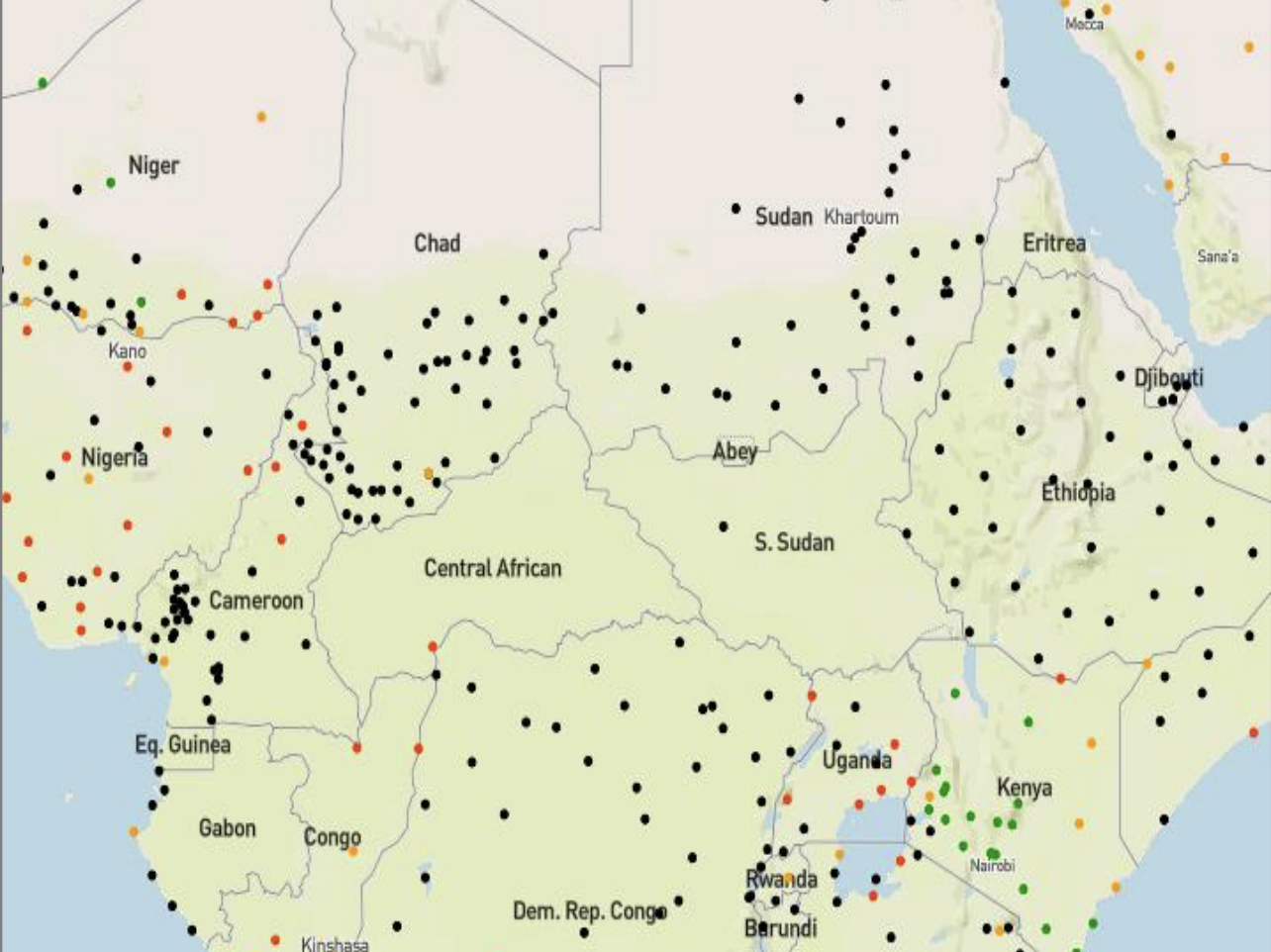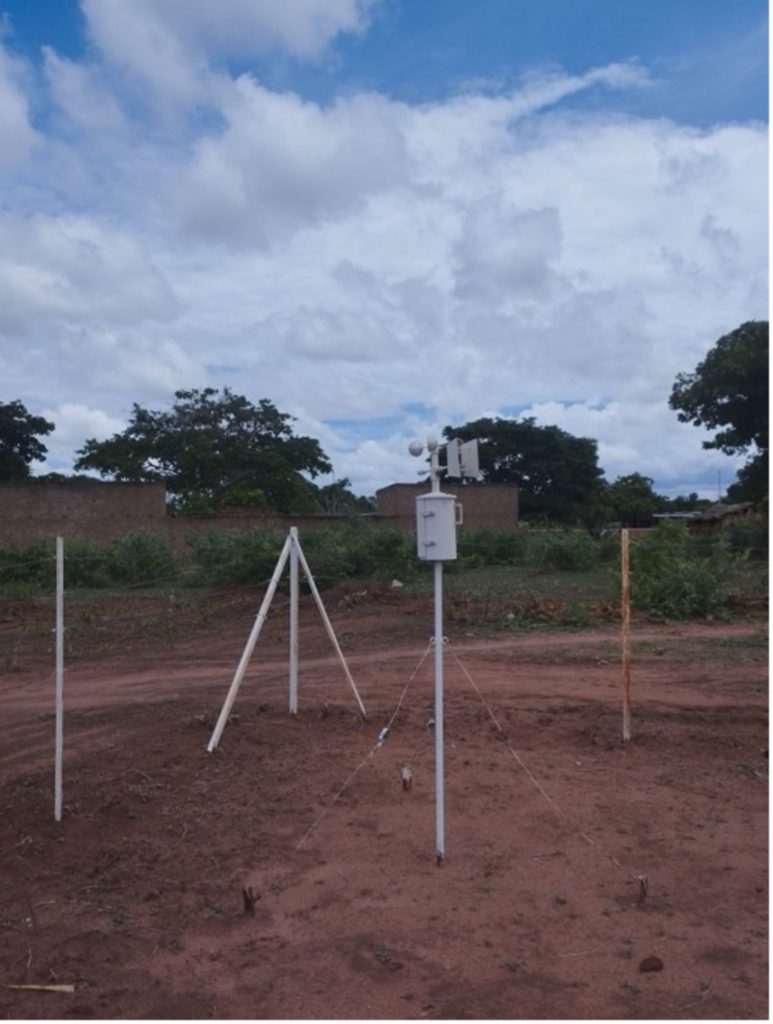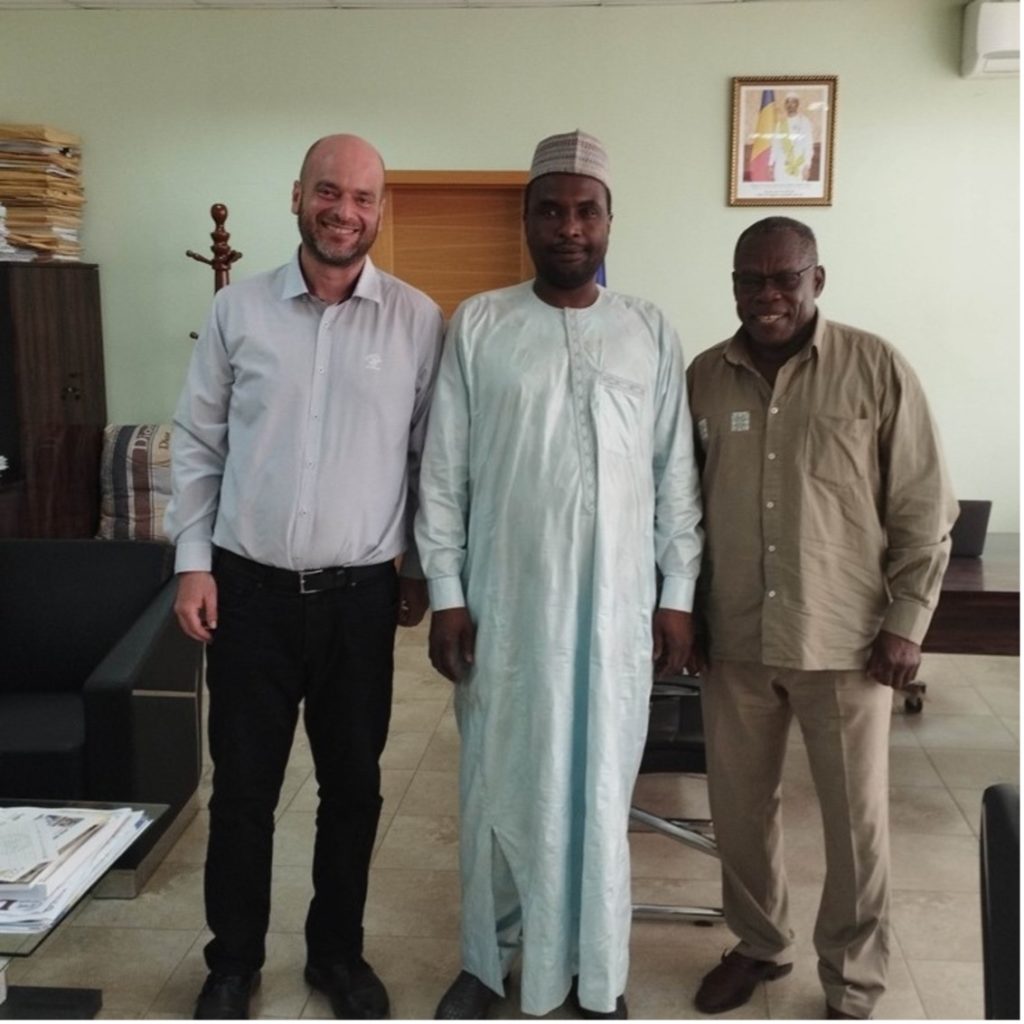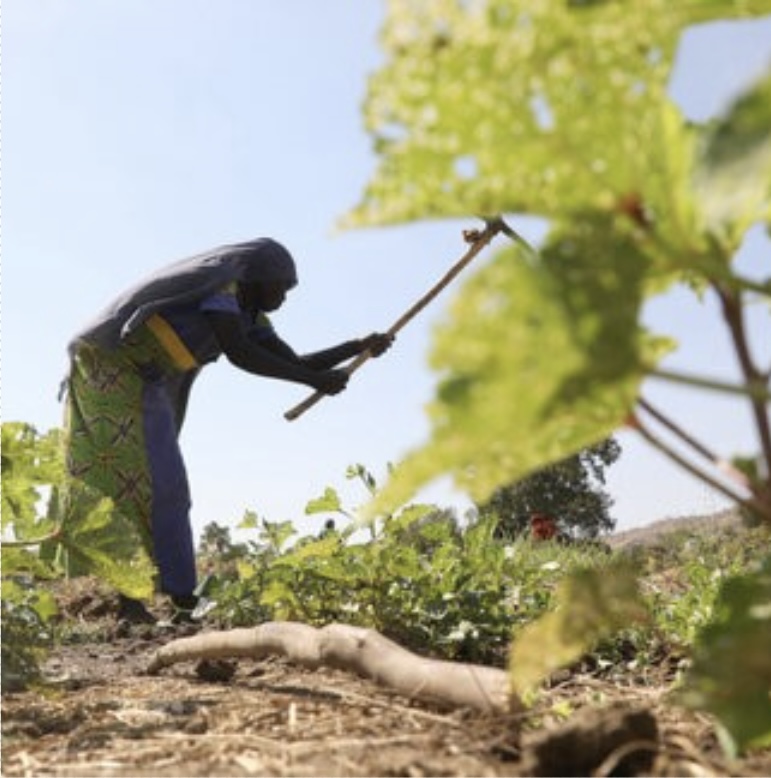Weather and climate data as cornerstone for safeguarding livelihoods of Chad’s communities
With a great variety of landscapes, Chad is a landlocked country nestled in the heart of Africa, characterised by diverse landscapes ranging from arid desert to subtropical zones. However, this geographical diversity also makes it particularly vulnerable to extreme weather events. Throughout the years, Chad has experienced severe consequences of intense drought in the eastern and central east areas -the agricultural backbone of the country- where the bulk of Chad’s food production takes place. Unfortunately, the country is also subject to extreme rainfall. According to Abdel-Lathif Younous, Anticipation Action and Early Warning System Officer at World Food Programme (WFP) “the floods of 2022 forced the government to declare state of emergency for malnutrition.” That year, floods affected 1 million people and destroyed 465,030 hectares of farmland (UNICEF).
These compounding climate shocks are not only eroding the country’s food security but also creating a wider social and economic crisis. As climate instability significantly weakens crops and ravages lands, these losses can set off a chain reaction of food shortages, leaving the population in extreme vulnerability. Additionally, the influx of refugees from neighboring Sudan might strain the local communities’ capacity to respond, highlighting the intersection of climate risks and humanitarian crises in fragile settings.
“People of Chad are among the most affected by the global climate crisis and face one of the highest levels of hunger in the world.” World Food Programme
“Act in anticipation of crises rather than in response to crises.” Hagar Ibrahim, Head of Research Assessment and Monitoring unit, WFP
Weather observations are the foundation on which all forecast products rely, from daily weather forecasts and long-term climate analyses to early warning systems that protect those living on the frontlines of the climate crisis.
Without this data, National Meteorological Offices are unable to make skillful predictions of future weather and climate. It limits their ability to support communities to adapt and mitigate the impacts of changing weather patterns, and it reduces the effectiveness of global weather models that governments worldwide rely on.
Today, only 50% of countries worldwide report having adequate multi-hazard early warning systems. Additionally, only 9% of the internationally mandated basic weather and climate data are available from Least Developed Countries and Small Island Developing States (WMO State of the Global Climate 2023 report).
With only one surface-land weather station and no upper air station – radiosonde attached to free-rising ballons to make observations in the atmosphere- reporting to international standards across Chad’s territory. It is necessary to implement or upgrade at least 34 new stations (32 surface and 2 upper air) for Chad to reach GBON compliance.
This international agreement clearly defines for the first time the minimum set of weather and climate data that all countries must internationally exchange; it is a mandatory requirement for all countries since January 2023. Currently, Chad is reporting 0% (upper-air) to 3% (surface) of mandated GBON data only. “GBON compliance is integral to the value chain of weather and climate services. We are confident that this joint effort will contribute to the Chaddian society in both the short and long terms” says Dr. Andreas Schaffhauser, Scientific Director General of GeoSphere Austria.
Ongoing SOFF investments in Chad are supporting the Meteorological Office of Chad, Agence Nationale de la Métérorologie (ANAM), in collaboration with the World Food Programme (WFP) serving as the SOFF Implementing Entity and GeoSphere Austria, Austria’s national meteorological service, providing hands-on techncial assistance. “Our main partner is the National Meteorological Service. We work very closely with them; it is really important for WFP as we are building national capacities for public good. Our work is a gradual process, it is about supporting the government throughout the way, with a lot of capacity strengthening on the technical part, on the requirements and on the use of the data,” says Hagar Ibrahim.
WFP is the UN’s largest humanitarian agency and member of the Alliance for Hydromet Development, whose goal is to unify and bring together major international actors to close the hydromet capacity gap by 2030. The Alliance’s priority was the creation of SOFF. The collective effort of giving access to reliable weather and climate forecast reinforces WFP’s ability to eradicate hunger and improve food security globally. SOFF’s support and WFP’s extensive field presence enable a shift from reactive crisis response to more forward-looking risk management. Thus, the joint expertise ensures a strong basis of the meteorological value chain, which can improve a countries’ capacity to adapt to climate change further down the line.

However, pursuing the enhancement of the country’s observational capacity through the implementation of these stations is not exempt from obstacles. “Access to remote areas is one of the biggest challenges. Chad so far does not have a good communication system to collect and share data, or even roads to access and maintain weather stations,” says Abdel-Lathif Younous. For stations in remote locations, SOFF’s investments can potentially share data via satellite – ensuring near real time data transmission in difficult-access locations.


However, not all can be automatized. For humanitarian assistance, there is no other option than trying to reach communities in person by car. “During the rainy season, many areas are not accessible. We have a lot of sites where we are meant to bring assistance, especially specialized nutritious products for women and children. Knowing when and where it rains would help us immensely, to choose the right route to get to the most vulnerable as quickly as possible,” says Robert Bachofer, Head of the Emergency Unit, WFP in Chad.
“It’s a consistent story that we just don’t have enough recent information with respect to changing climate to make increasingly informed decisions”
Jesse Mason, Head of Climate Monitoring and Policy Services Division, WFP
Closing the weather and climate data gap has a beneficial impact on living conditions and agriculture in Chad
Without sufficient and good-quality data, a lot of crucial decisions are based on estimation, especially concerning agriculture. This is particularly relevant for 69% of Chad’s population, who depend on agriculture (World Bank, ILO estimation). As well known, many climate-related hazards are increasing in frequency and severity and will continue in the future, undermining communities’ economic activity. Abdel-Lathif said how damaging it could be that “farmers’ investments in time and fertilizers are failing because of the lack of weather knowledge. There are many areas in the Sahel where we don’t have data. This means everything you have is just estimation.” However, estimations may fail.
Better forecasts have an additional co-benefit: although locust migration is not a new phenomenon in Chad, above-normal rainfall enhances the breeding conditions of this species. This, in turn, results in the “ravenous eaters” invasion (FAO). With Chadian family history and years of consulting experience for several agencies in Chad, Abdoulaye Harou has seen firsthand the need of accurate weather data in forecasting locust migrations. Therefore, better data and better forecasts benefit not only directly, but indirectly in better preparation, mitigation and response.
“Crop-destroying migratory locusts come from eastern Chad and Sudan, then spread across Chad to Niger and Cameroon. Having good weather data information in Chad makes it possible to identify the key areas for predicting the occurrence of these locust invasions. Locust movements can be accurately predicted by analyzing and predicting winds, temperatures, precipitation etc. It’s important to be able to predict the occurrence of these invasions, thus, it’s primordial that Chad is covered by weather stations, especially in the northern zone,” says Abdoulaye Harou.

Therefore, data gathering efforts in Chad benefit not only the local population but also beyond national boundaries by collecting and internationally sharing basic weather and climate data, contributing to safeguarding the agricultural sector. “Without SOFF, Chad will remain a large blind dot in the world meteorological map, hampering any attempt to try and provide a firm base for an effective decision making mechanism for weather and climate hazards for the government of Chad, as well as any other international aid organisations”, says Giora G.H. Gershtein from Geosphere Austria.
Better data for better weather forecasts is just a start
Collaboration along the meteorological value chain is key to leveraging weather and climate data. SOFF’s investment and partner’s support help countries to build capacity on Anticipatory Action. The Projet Intégré pour la Lutte contre les Inondations et la Résilience Urbaine à N’Djamena, also named PILIER Project, implemented by the World Bank in partnership with the Agence Francaise de Development and the European Union, is a great illustration of the necessary complementarity between weather forecast and humanitarian sector. The project is based on a global approach to increase the country’s capital N’Djamena’ resilience to climate change challenges (World Bank) and prevent catastrophic floods such as the one that occurred in 2022. Abdoulaye Harou made it clear, “To carry out the PILIER project we need to be able to observe rainfall upstream of N’Djamena. There are two rivers, fed upstream, that flow into the capital. Thus, having weather stations upstream would help us successfully predict when flooding will occur. PILIER needs capability for producing accurate forecasts and warnings, and for that, we need the data SOFF is supporting Chad to collect.”
Recognizing the challenges ahead, the government of Chad created a plan in 2017 to increase the country’s resilience by 2030: “SOFF Investments, now approved for Chad, are hugely important for the country. It’s oxygen for the Meteorological Service, which will be able to monitor the weather properly and benefit from the output of more accurate global forecast products to prepare and disseminate precise forecasts and warnings for the population. SOFF will therefore help Chad to have a well-maintained and functional weather observation system, an important element in the value chain of a multi-hazard early warning system,” says Sakine Botchomi, Permanent Representative of Chad to the WMO.
Many thanks to all our partners and collaborators who agreed to share their insights for this article.
About
- Systematic Observations Financing Facility (SOFF): SOFF is a UN specialized fund co-created by WMO, UNDP and UNEP to close the climate and weather observations data gap in countries with the most severe shortfalls in observations, prioritizing Least Developed Countries (LDCs) and SIDS. SOFF provides long term financial and technical assistance to support the acquisition and international sharing of basic weather and climate observations, according to the internationally agreed Global Basic Observing Network (GBON) regulations. SOFF is a foundational element and delivery vehicle of the UN Early Warnings for All Initiative.
- Global Basic Observing Network (GBON): GBON paves the way for a radical overhaul of the international exchange of observational data, which underpins all weather, climate and water services and products. GBON sets the requirements for the acquisition and exchange of basic surface-based observing network designed, defined and monitored at the global level. GBON will improve the availability of the most essential surface-based data, which will have a direct positive impact on the quality of weather forecasts, thus helping improve the safety and well-being of citizens throughout the world.
- Early Warnings for All initiative: The initiative and its Executive Action Plan was launched by the UN Secretary-General in November 2022 at the COP27. The Initiative calls for the whole world to be covered by an early warning system by the end of 2027. Early Warnings for All is co-led by WMO and UNDRR and supported by pillar leads ITU and IFRC. Implementing partners include FAO, OCHA, UNDP, UNEP, UNESCO, REAP, and WFP, among other partners. SOFF and CREWS are delivery vehicles of this initiative.
YOU MAY ALSO LIKE...






